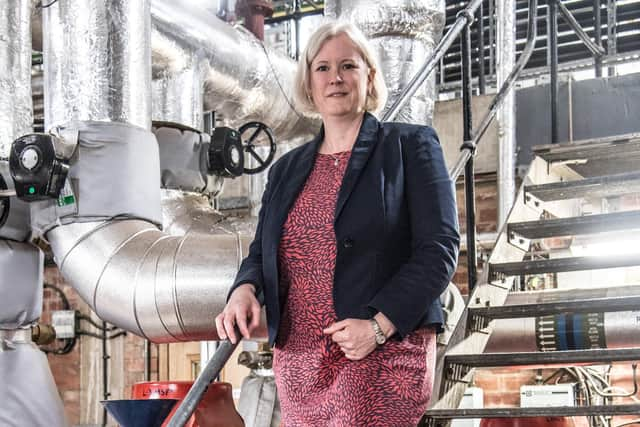Pandemic should be 'catalyst for us to rethink' on poor quality housing and work environments, Leeds Sage member says
Professor Cath Noakes, from the University of Leeds, reflected on the last 12 months as she said while impressive advances had been made, there was still a lot to learn about the virus.
“Even in February, we didn’t know the scale, that it was going to be worldwide,” Prof Noakes, who sits on the Scientific Advisory Group for Emergencies (SAGE), said.
Advertisement
Hide AdAdvertisement
Hide Ad“I think it was only once we got through into the middle of that first wave that you could see the scale. And once you knew that, you only had to look back at history and the 1918 flu pandemic and say this is not going away.”


“The first paper that we did for sage, which was in April on environmental transmission, and all the things in there about how it transmits has largely stayed the same. Which is not surprising. [But] we still haven't quite worked out how much different people transmit, and the fact that we know there's a massive range.
“So we know that some people don't transmit to anybody now, and other people transmit to lots, and you can get super spreader outbreaks, and you can get nothing.
“It is a weird thing in the sense that some of the fundamentals haven't changed, but our nuanced understanding of it has.”
Advertisement
Hide AdAdvertisement
Hide AdShe said those who had been most impacted by the pandemic were those “in the most deprived areas, that are in the most crowded housing, the lowest paid jobs”.
She said: “If you go back in history and go back to when people first introduced sanitation, and they cleared all the slums, that was all about quality of housing and sanitation for people.”
And she added she hoped the pandemic was “going to be the catalyst for us to rethink” about the environments people live and work in in the future.
“It's really made us think in so much more detail about how diseases transmit and it's made us think a lot more about how our environments and how our behaviors enable diseases to transmit,” she said. “Everybody's learned a massive amount there.
Advertisement
Hide AdAdvertisement
Hide Ad“I think possibly it's taught us that pandemic preparedness is more than just having a plan for the logistics and the medical response.
“I think it's exposed where there are gaps as well. So it’s exposed where we have gaps in our science capacity and capabilities. And it's exposed, back to ventilation and buildings, that we've ignored it for so many years and we don't think about the quality of environments that we're in.”
She said: “A positive note is how the scientists have dealt with it. I've always worked in a research area that's interdisciplinary, but I've never seen anything like this before.
“The way people have put aside what would have once been differences and just focused on solving a problem, it's just incredible how people have pulled together on it.”
Comment Guidelines
National World encourages reader discussion on our stories. User feedback, insights and back-and-forth exchanges add a rich layer of context to reporting. Please review our Community Guidelines before commenting.